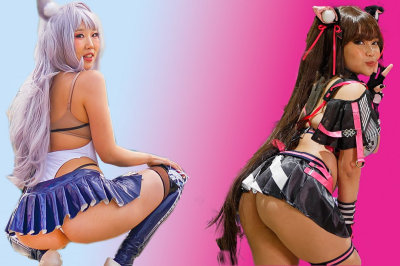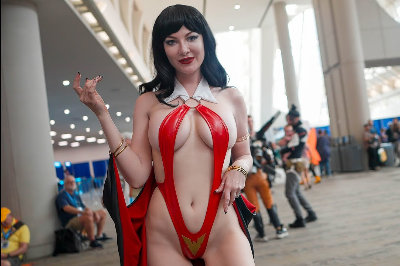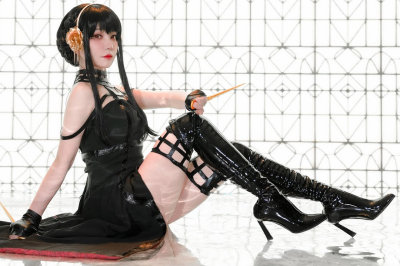PHONE BOOTH - Q&A with director JOEL SCHUMACHER
PHONE BOOTH, in which Farrell is on screen for virtually every second of this roller coaster movie is about a man pinned down by a sniper and forced to re-examine and reappraise his own life in the process.
"Colin is extraordinary," says Schumacher. "He is one of the best actors working today, of that there is no doubt. And we've really been in the trenches together because the two films we've done were ball busters."
Farrell, who has gone on to star in HART'S WAR, MINORITY REPORT, DAREDEVIL and the soon to be released SWAT, returns the compliment and says, quite simply, that Schumacher has been his mentor. In PHONE BOOTH Farrell plays Stu Shepherd, a hustler who earns his living in the world of media consultancy, a man who has few scruples and even less of a conscience.
But Shepherd's life is about to change in the most dramatic way - when he answers a ringing phone in a public phone booth on one of New York's busy streets. If he hangs up, says the caller, Shepherd is a dead man. When the sniper proves his deadly intentions, Shepherd's world - and quite probably his exit from it - is narrowed to the perspex confines of that tiny booth as police, on lookers, his wife, the young actress he had tried to seduce and TV cameras crowd the street unaware that they are all in range of the sniper's sights, believing instead that Shepherd has killed a man, is armed and refusing to give himself up.
As Schumacher points out, the sniper believes he is a 'moral adjuster' dispensing his own lethal brand of urban justice with a high powered rifle in his hands.
"He seems to know everything about Shepherd, all the things that he has done that he shouldn't have done and he forces him to confront those things," says the director. The caller is an extremely intelligent man but obviously a sadist and who believes he has the right to decide whether someone should live or die."
Schumacher filmed the opening sequences in New York's Times Square - where Stu and his assistant walk through the crowded street juggling one call after another on mobile phones - and then moved to Los Angeles where a city street was given a Manhattan makeover.
The director, now 62, was born and raised in New York City where he studied design and display at the Parson School of Design. Amongst his first paying jobs was window dressing a book store and later, through a chance meeting with a producer, moved on to set design. He then worked as an art director in television before becoming a costume designer, working with Woody Allen on SLEEPERS AND INTERIORS.
He made his directing debut with the television movie THE VIRGINIA HILL STORY and later AMATEUR NIGHT AT THE DIXIE BAR AND GRILL. His feature films include ST ELMO'S FIRE, LOST BOYS, COUSINS, FLATLINERS, DYING YOUNG, FALLING DOWN, BATMAN FOREVER, BATMAN OF ROBIN, THE CLIENT, A TIME TO KILL AND TIGERLAND. He divides his time between Los Angeles and a holiday home in the mountains near Santa Barbara.
How was working with Colin Farrell again?
Just great - as always. We're proud of our little Irish lad. He's making more money than I am. (Laughs)
You obviously know him very well now. What is it that you like about his work?
I think I know him personally as well as anyone. He's a really wonderful guy. And we've really been in the trenches together because the two films we've done were ball busters. I mean in TIGERLAND we did the whole film in 28 days, there was no make up, no hairdresser, no stunt doubles, we shot it in 16 mm hand held and they are doing it. I mean, we were in the swamps and this hellhole of Florida and the toughest conditions you could be in. And it was the same with PHONE BOOTH. The phone booth section is ten days. We shot the Times Square section first, which is half a day really. And we had to move to Los Angeles because it had gotten so cold. We were at the London Film Festival with TIGERLAND and that's at the end of November and went back to start PHONE BOOTH. By the time we got to New York it was freezing cold and I didn't want to do the movie with people all bundled up in coats and so that first day of shooting everyone was freezing, all the extras, everyone, they were good sports about it but we could never have shot for another ten days like that.
Why Colin? What do you like about him on a personal and professional level?
Well, personally. You can't really hire an actor personally because some people with enormous gifts are jerks but you still have to work with the right person for the part. Colin is an amazing young man because he has a kind heart, he is what you would call a good lad. He is kind to his family, sensitive to others, very kind. He's got a good heart and soul. As an actor I think he is limitless.
That's a big compliment...
Well, there aren't too many people that can walk into a phone booth for ten days straight and do 12, 14 pages of dialogue a day, walk in that phone booth as one character and come out a very different person, at his age. With no time and do a south Bronx accent, no bullshit, just go and do it. We got there at six, we started shooting at seven, we did French hours where you don't break for lunch you just pass the food around, because we had to stop shooting at four because we lost the light so you know that's tough. He's in every second, he's never off, and even when we cut away to other people we still have a camera on him.
Do you think success, stardom, call it what you want, will spoil him?
It would have already. The seeds are there. You always can tell in the beginning. You know when I was doing costumes and sets I did several movies with Woody Allen and he taught me a lot of great things and one of the things he said was 'success gives people permission to be exactly who they were always supposed to be anyway' and the good get gooder and the worse get worse and you can always tell with any young person. And we say that, the crew, we'll say 'God help us with this one if he ever gets to be a superstar because hell will hath no fury...' But then there are other people, Sandra Bullock is a great example, George Clooney is another one, where they were around for a while and nothing happened and then it happened and they were great to begin with and they got nicer even. But some people once they get it they totally abuse the power and make everyone suffer and we all dread having to go to work with those people and you have to deal with them too. Nicole Kidman is another nice one.
So he's in good company...
(Laughs) Colin is just a lad. And you know what people are always saying to me, 'he could be a John Star?' Who knows? And what if he isn't. He will still be this great looking guy who is a wonderful actor and who will make more money than anybody else anyway so who cares? And he will still have a good life, he's very close to his family and I think that has a lot to do with it. I think Colin will be fine. I really do.
The premise of the movie - the whole three acts set around the phone booth - is challenging for a director because you have to keep the audience with you. How did you approach that?
That was one of the exciting things about making it. When we showed it to the first research audience, and these are people who have come in off the street and don't know what they are going to see, we didn't even know if people would sit still for a movie in a telephone booth, you know they are used to seeing huge explosions, car chases, the cavalry coming over the hill. At first there were a lot of laughs in the beginning, then when they start to realise what is going on in this movie, at one point, I was standing at the back of the theatre and there was dead silence, you couldn't hear a pin drop in the theatre. And that's exciting for a director because you know you've got them. And a lot of that is about the performance and the script was obviously just great, I mean, I knew if we could hook people in they would want to stay with us.
There are a few laughs early on. It gives publicists a hard time, too...
Shepherd is a certain kind of animal. He could be doing any job, really. He's a hustler and he's used to spinning the truth so much so that he doesn't really know what is the truth anymore. I like when he says 'I'm part of the big circle of lies, I should be president.' We had a lot of fun on it. Everybody here (at the Toronto Film Festival) has been great about it. Ever since we got off the plane people have been coming up and saying 'your movie is the hot ticket.' In the States it opens the same day as HARRRY POTTER and this journalist said to me, 'are you worried about that?' I said 'let me give you a little tip, HARRY is going to do a little better...' I said surely you don't mean this is the same audience. Should I take the kids to HARRY POTTER or this movie that is R rated in a phone booth with a lot of violence. Don't ask the kids, though, they'll go for the violence (laughs).
Let's talk about the violence. It's implied more than graphic, presumably that's what you intended?
You know what it is - it's the sense of violence. It's like FALLING DOWN, the sense of violence is more violent than an action movie. Once you see hundreds of people dying you know it's a comic book, you see fifty gunshots and you get inured to it. But the sense of impending violence is scarier than graphic violence. And if it works that's the cast.
When you started in design did you hope that it would lead to directing?
No, design was to pay the bills. I grew up very poor, my father was dead by the time I was four and my mother was out at work six days a week and three nights a week and we lived poor. I started working when I was nine, I delivered meat for the butcher, My mother worked in a dress store and next door was a book shop and the woman in the bookshop paid me if I came in and stacked the books in the window attractively, so I started doing windows and I worked my way through art school doing windows. I wanted to make movies since I was seven. I grew up behind a movie theatre before television and I spent all the time in the movies that I could but there were no film schools, no film colony and we were poor and Hollywood then was like a billion miles away so I worked in this store to do the windows and everyone said 'you have an eye, you have style, you should go into fashion you will make a lot of money.' And the phrase 'a lot of money' meant that I had those adolescent fantasies of taking my mother out of poverty, so she didn't have to work and get her a nice apartment and buy her a fur coat. I remember those fantasies. But that didn't happen, she died when I was still young.
When you arrived in Hollywood was it as you expected?
(Laughs) No, it was so different. I had this concept that there were these movie studios and behind the gates there were all these geniuses, you know, this beehive of activity with all these geniuses rushing around and there was and there weren't, there are some and there are none. And then of course, no names, but I've met and worked with and observed some of the great legends of my lifetime. Some of them have been inspirations, some of them I would have preferred to have loved them from afar - because I can't look at them on the screen because I know too much. But I still love movies and I still get excited and have been very blessed to work with a lot of young talent on the way up.
You certainly have. You know how to pick a future star that's for sure...
I've been lucky that the people I've chosen have been great in those parts and the audience has embraced them. It started with ST ELMO'S FIRE because that cast was so fresh then and then LOST BOYS and then FLATLINERS. But of course the big films and the big stars weren't being offered to me so I had to find the best people around for my films And Colin just walked in from Dublin into my hotel room in London and wound up getting the lead in that movie (TIGERLAND) and I don't know how that happened myself but he is deserving of it and I'm so proud of him. I can't say enough about the cast of this movie - they worked their asses off.
Question & Answer Text Copyright of Twentieth Century Fox



